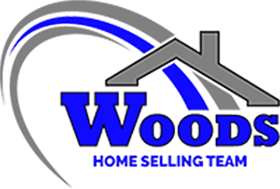Navigating the Paperwork Knots: Tips for a Hassle-Free Home Transaction

Image via Pexels
The process of buying or selling a home can be both exciting and overwhelming. One of the most daunting aspects of the process is keeping up with the paperwork that comes with it. By staying organized and following some key strategies, you can make sure the process goes as
smoothly as possible. Today, The Woods Home Selling Team will discuss some essential tips for managing the paperwork involved in the home buying and selling process.
Keep Up with Your Deadlines and Timelines
One of the first steps to take when dealing with the paperwork in the home buying and selling process is to create a comprehensive timeline. This should include all the key dates and deadlines associated with the transaction. Crosschecking these dates with the required
documents will help ensure that nothing falls through the cracks, and you’re able to stay on schedule. Make sure to review your timeline regularly and adjust it as needed to account for any changes or delays that might occur.
Figure Out Which Documents You Need
There are numerous documents required for the home buying and selling process, and it’s crucial to know exactly what you’ll need. This includes everything from property disclosures and inspection reports to mortgage applications and closing documents. Research the specific requirements for your situation, and create a checklist to keep track of the necessary paperwork. Having a clear understanding of the required documents will help you stay organized and ensure that everything is in order when it’s time to close the deal.
Add Smart Upgrades
Adding select smart home improvements to your house before putting it on the market can significantly enhance its appeal to potential buyers. In today’s tech-savvy world, features like smart thermostats, automated lighting systems, and advanced security solutions are not only attractive for their convenience but also for the efficiency and cost savings they offer. These upgrades can make your property stand out, suggesting a modern and up-to-date home. Moreover, smart home features are often seen as a sign of a well-maintained property, which can add to the overall perceived value of your home.
Vet Interest from Potential Buyers
Verifying legitimate interest in potential homebuyers is a crucial step in the real estate process, ensuring that inquiries come from serious individuals rather than casual browsers or fraudsters. One effective method to assist in this verification is using a reverse phone lookup service that allows users to input a phone number to find detailed information about the owner, including their name and location. For instance, this one will give you more details on the 717 area code. This tool is particularly useful for identifying unknown callers, screening telemarketing calls, or simply verifying the identity of someone who has contacted you.
Tips for Setting Reminders
With so many deadlines and important dates to remember during the home buying and selling process, it’s easy for something to slip your mind. To avoid missing any crucial deadlines, set reminders for key dates in your calendar or on your phone. This will help you stay on top of what needs to be done and when, ensuring that you’re always prepared and ready to move forward with the transaction.
Using Online Banking
The home buying and selling process often involves various expenses, from inspection fees to closing costs. Using online banking can help simplify the process of tracking these expenses and keeping your budget in check. Online banking allows you to view and categorize your
transactions, making it easier to monitor your spending and ensure that you’re staying within your budget.
Keeping a Document Listing All Expenses
In addition to using online banking, it’s also helpful to create a document listing all of the expenses associated with the home buying and selling process. This can include everything from agent fees to moving costs. Having a comprehensive list of expenses will help you keep tabs on your budget and ensure that you’re not overspending or overlooking any necessary costs.
Managing the paperwork associated with the home buying and selling process may seem overwhelming, but with the right strategies in place, it doesn’t have to be. By documenting your timeline, understanding the required documents, updating your records regularly, setting
reminders, organizing digital files, utilizing online banking, and keeping a list of expenses, you’ll be well on your way to staying on top of the process. By staying organized and proactive, you can help ensure a smoother and more successful home buying or selling experience.
The Woods Home Selling Team is here to help you get you the best price available. Feel free to email info@georgewoodsteam.com.
Article provided by: Suzie Wilson




Join The Discussion